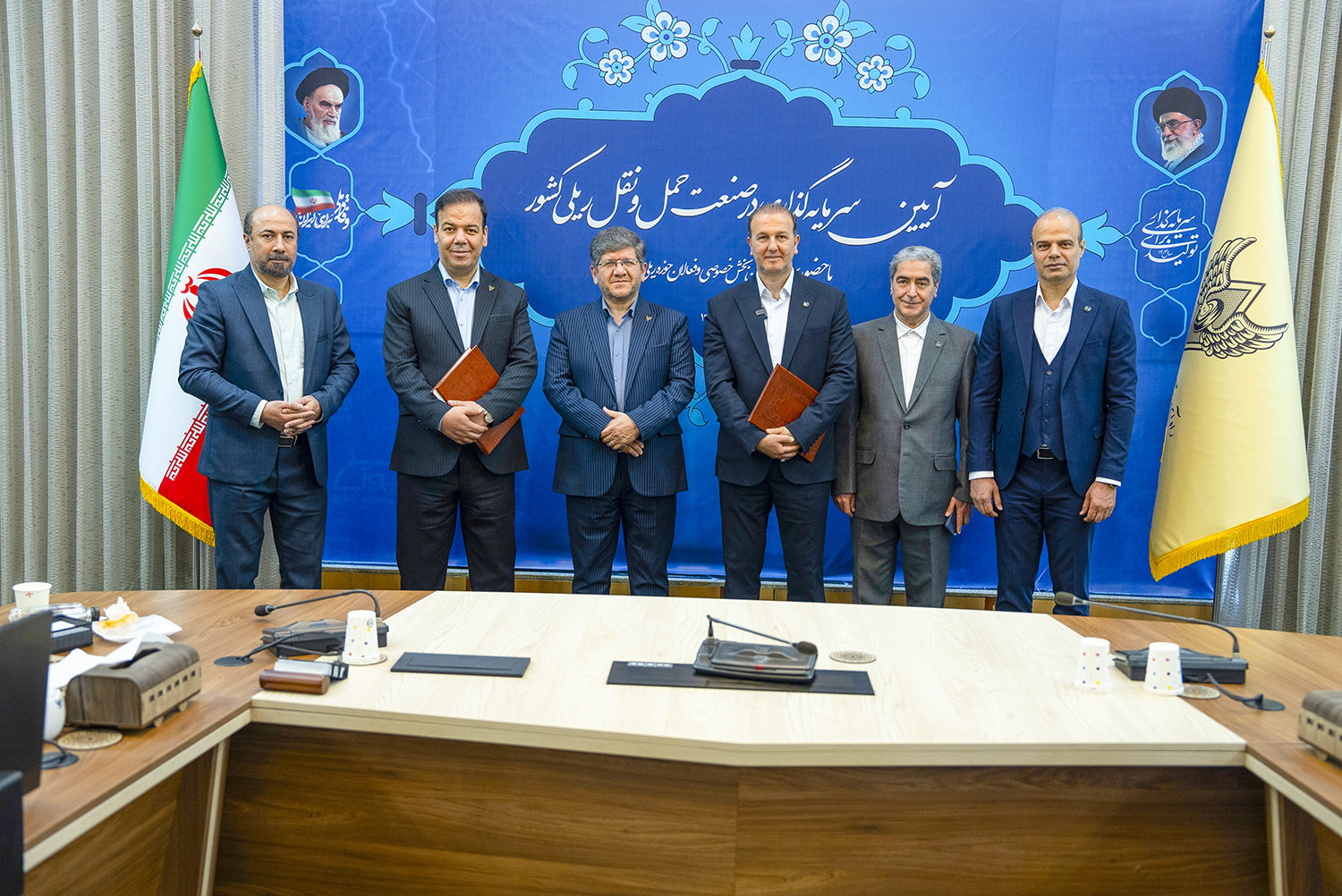
DotOne Rail Signs $750M Agreement to Support Iran’s Rail Fleet Expansion Initiative
In an official ceremony held today, Sunday, 31 Farvardin 1404, at the Islamic Republic of Iran Railways, a foundational step was taken toward empowering Iran's rail transportation industry: an investment worth 64 thousand billion tomans (equivalent to 750 million dollars), focused on the production and supply of 2,000 freight and passenger wagons, as well as locomotives.
According to the public relations office of the dotone Value Creation Group, this historic event took place in the presence of the Minister of Roads and Urban Development, the CEOs of the Railway Company and the Fuel Consumption Optimization Company, the head of the Parliament’s Civil Commission, and executives from dotone Rail. During the ceremony, two key memorandums of understanding were signed with the companies “dotone Rail” and “Pars Ofogh Hashtgerd.”
dotone Rail; a driver of sustainable development in the rail transportation industry
In the first memorandum of understanding, signed between the Railway Company and dotone Rail, a subsidiary of the dotone Group, a foreign currency investment of \$713 million was targeted for the supply of 300 diesel multiple units (DMUs), 50 locomotives, and 600 tank freight wagons. This project, defined within the framework of sustainable development of the country’s rail infrastructure, represents a fusion of domestic production capabilities with cutting-edge global technologies.
A strategic outlook on the development of freight and passenger fleets
The second memorandum of understanding, valued at 3 thousand billion tomans, was signed with Pars Ofogh Hashtgerd and focuses on the supply of 650 bulk freight wagons through a $37 million investment—another step toward enhancing the country’s rail transit capabilities.
From infrastructure to well-being: officials’ remarks at the signing ceremony
At the ceremony, Minister of Roads and Urban Development, Farzaneh Sadegh Malvajerd, emphasized the energy imbalance and the superior role of rail transport, stating: “Rail fuel consumption is one-fifth that of road transport, and the development of this industry can liberate the country from the constraints of sanctions and enhance our role in regional corridors.”
Transit; the railway’s horizon in transportation diplomacy
Jabbarali Zakeri, CEO of the Railway Company, also announced the target of transporting 8 million tons of international cargo this year and stated that achieving 40 million tons of transit cargo is on the agenda. He spoke about ongoing meetings with investors for fleet and transit development and emphasized the importance of scheduled trains and constructive engagement with stakeholders.
A comprehensive and long-term plan for attracting private investment
Norollah Beyranvand, Deputy for Investment and Railway Economy, stated that the Seventh Development Plan emphasizes increasing the rail sector’s share in transportation and the movement of 40 million tons of transit cargo. He announced the formulation of a comprehensive plan to attract $6.4 billion in private sector investment—77 percent of which is focused on rolling stock and 23 percent on infrastructure.
He also referred to the disbursement of fuel efficiency subsidies (Article 12), the use of a credit line from the National Development Fund, and the creation of an investment ecosystem—a set of measures that make investing in this industry both profitable and low-risk.
Ebrahimi: Technology weaves together passengers and cargo.
Mehdi Ebrahimi, CEO of dotone Rail, referring to the collaborative and innovative nature of the memorandum, stated: “The fleet of this project will draw on both domestic production capabilities and international resources. Our goal is to develop trains that do not require diesel, reduce the Tehran–Mashhad rail travel time to 6 hours and 40 minutes, and launch... Railway airplane Requirements for achieving the deserving position of the railway industry.
He also announced an 8-million passenger increase in transport capacity with the introduction of 300 DMU trains, adding: “With the addition of tank wagons, 500 million ton-kilometers will be added annually to the country’s freight capacity. Forming full freight trains will accelerate wagon movement and enhance efficiency across the supply chain.”
dotone Rail; a symbol of synergy and innovation
This investment goes beyond an industrial contract; it is a reflection of human values, collaboration, and meaning-making within the framework of the national economy. In the world of dotone, every investment point is not only infrastructural but also a creator of culture and quality. This joint step, aligned with dotone’s generative mission, is a bridge between the present and the future of the rail industry—between public well-being and a resilient economy.


